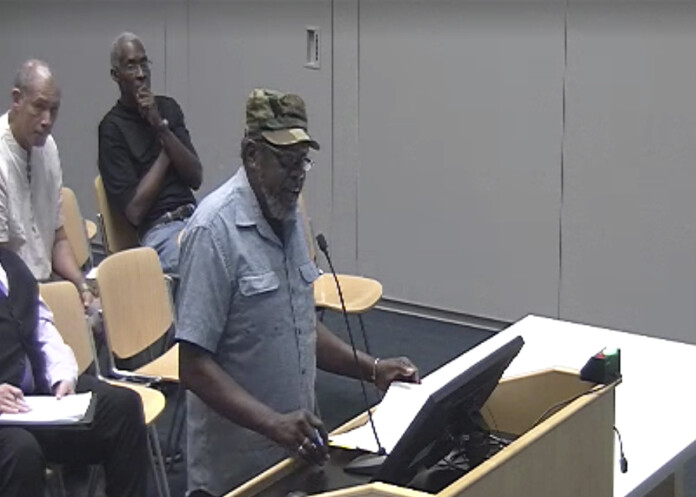
Activists said city government in Maricopa lacked diversity during an Aug. 15 city council meeting, reprimanding it for employing just “three Blacks.”
It turns out this number is off by a factor of 1,200%. But there might still be some veracity to claims that the Black community is underrepresented in city government.
During a call to the public, Le’on Willis and Kent O’Jon said the city did not make an effort to represent Maricopa’s diverse residents.
“The Black population is more than 10% of Maricopa and continues to grow,” he told the council. “Yet this is not reflected in the hiring at the higher or lower level of city government.”
O’Jon, director of the Black Maricopa Chamber of Commerce, shared that sentiment during the call.
“We notice that out of the employees that are hired by the city, that work for the city, there are only three Blacks represented in the city of Maricopa,” O’Jon said.
The numbers tell a different, though related story.
The city employs 36 Black people. But that amounts to just 7% of its more than 500 employees, according to data obtained by InMaricopa.
These numbers were “self-reported by the employee” and “not otherwise verified,” according to city spokesperson Brandon LaVorgna.
Eight of the three dozen employees work in management positions. The city did not say how many worked in full- or part-time roles.
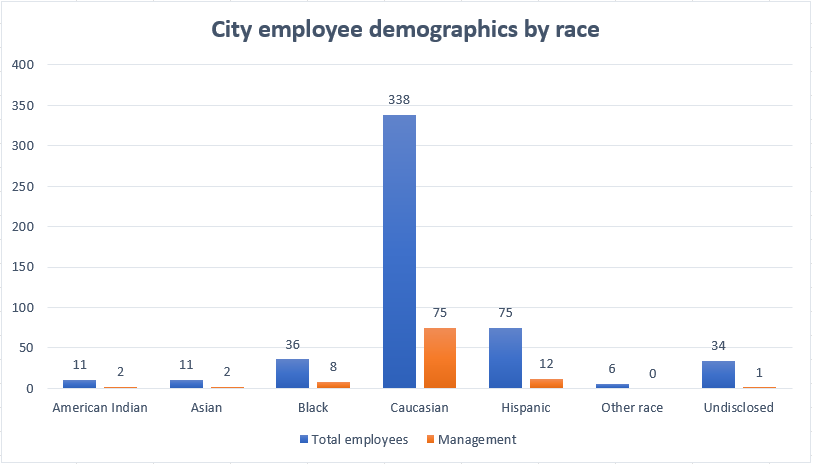
The city clerk, municipal court, executive services and public safety administration do not employ any Black people. These same departments also do not self-report any American Indian or Asian employees.
And, at 7%, the number of Black employees does not reflect the city’s demographics.
The U.S. Census estimates Maricopa’s Black population to be 12.4%. That means Maricopa has the largest Black population in the state per capita, with Tolleson (12.02%) and Eloy (10.6%) rounding up the top three.
City Councilmember Henry Wade, perhaps Maricopa’s most visible Black leader, said he feels the city could improve its diversity efforts.
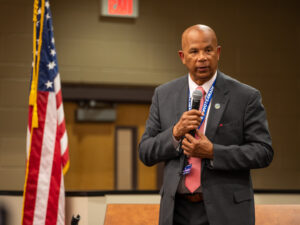
Willis said he doesn’t think the city takes that issue of visibility seriously.
“We pay taxes like everyone else, but when it comes to representation, we’re not represented,” he said. “I’ve been here six years and I haven’t seen any improvement, which tells me that they don’t want any improvement.”
Local activist Aubrey Morris agreed, adding his move to Maricopa prompted him to strive for a more welcoming environment for his children than he had.
“When we pass on, our kids are going to inherit our properties,” Morris said. “We want them to be in a city that respects them and recognizes them.”
Wade said he hoped to spark discussion around diversity and inclusion among city staff — all bogus statistics aside.
“The people love Maricopa and Maricopa needs to love them back,” he said.

![City gave new manager big low-interest home loan City Manager Ben Bitter speaks during a Chamber of Commerce event at Global Water Resources on April 11, 2024. Bitter discussed the current state of economic development in Maricopa, as well as hinting at lowering property tax rates again. [Monica D. Spencer]](https://www.inmaricopa.com/wp-content/uploads/2024/04/spencer-041124-ben-bitter-chamber-property-taxes-web-218x150.jpg)
![3 things to know about the new city budget Vice Mayor Amber Liermann and Councilmember Eric Goettl review parts of the city's 2024 operational budget with Mayor Nancy Smith on April 24, 2024. [Monica D. Spencer]](https://www.inmaricopa.com/wp-content/uploads/2024/04/spencer-042424-preliminary-budget-meeting-web-218x150.jpg)
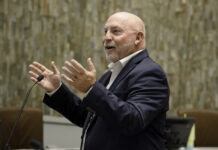

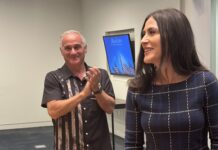
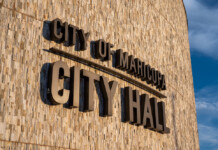
![Elena Trails releases home renderings An image of one of 56 elevation renderings submitted to Maricopa's planning department for the Elena Trails subdivison. The developer plans to construct 14 different floor plans, with four elevation styles per plan. [City of Maricopa]](https://www.inmaricopa.com/wp-content/uploads/2024/04/city-041724-elena-trails-rendering-218x150.jpg)
![Affordable apartments planned near ‘Restaurant Row’ A blue square highlights the area of the proposed affordable housing development and "Restaurant Row" sitting south of city hall and the Maricopa Police Department. Preliminary architectural drawings were not yet available. [City of Maricopa]](https://www.inmaricopa.com/wp-content/uploads/2024/04/041724-affordable-housing-project-restaurant-row-218x150.jpg)



![Alleged car thief released without charges Phoenix police stop a stolen vehicle on April 20, 2024. [Facebook]](https://www.inmaricopa.com/wp-content/uploads/2024/04/IMG_5040-218x150.jpg)




![City gave new manager big low-interest home loan City Manager Ben Bitter speaks during a Chamber of Commerce event at Global Water Resources on April 11, 2024. Bitter discussed the current state of economic development in Maricopa, as well as hinting at lowering property tax rates again. [Monica D. Spencer]](https://www.inmaricopa.com/wp-content/uploads/2024/04/spencer-041124-ben-bitter-chamber-property-taxes-web-100x70.jpg)